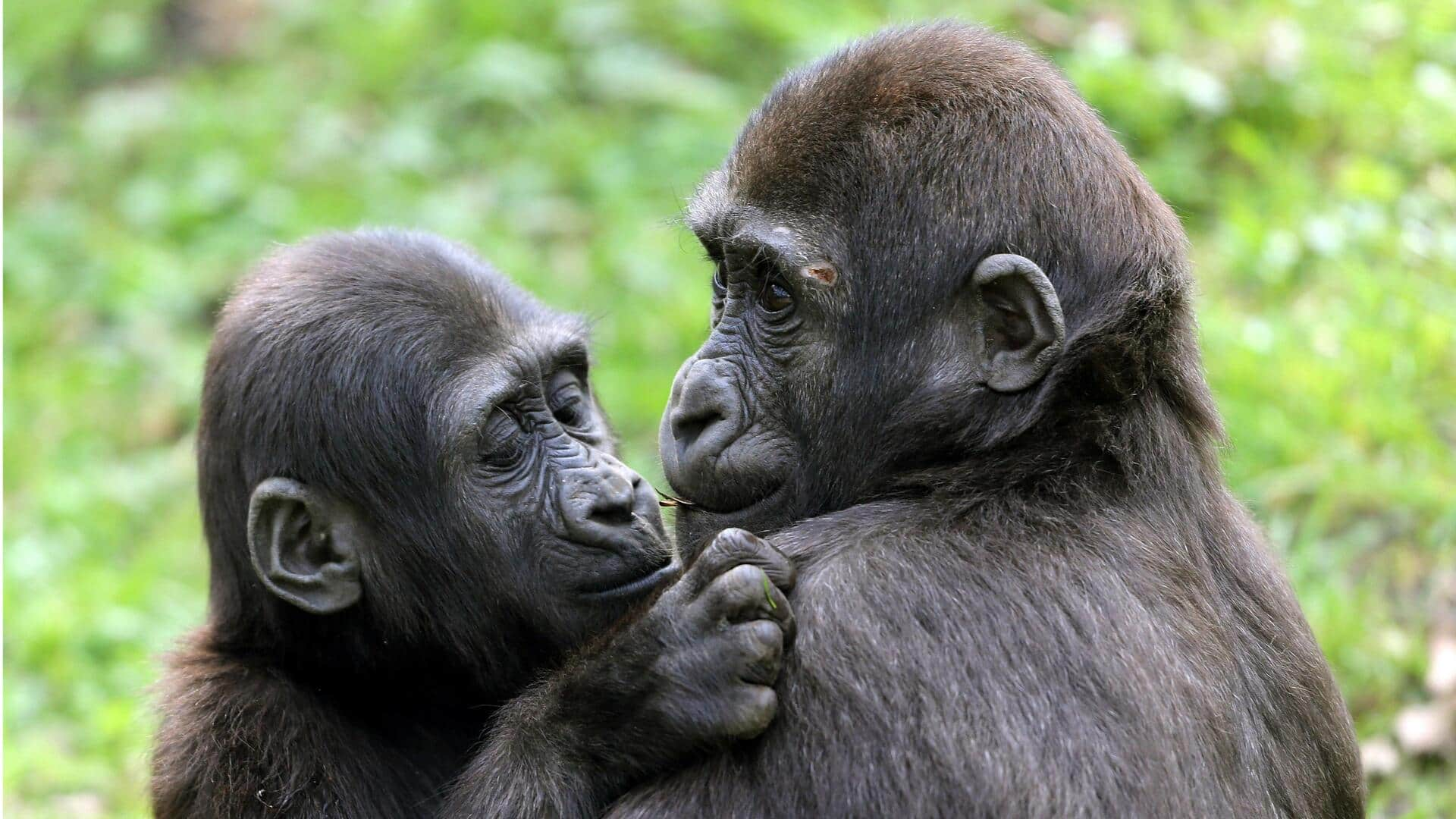
When was the first kiss? Scientists say 21M years ago
What's the story
A recent study has traced the evolutionary history of kissing to over 21 million years ago. The research, published in the journal Evolution and Human Behaviour, was led by Dr Matilda Brindle from Oxford University and involved researchers from the Florida Institute of Technology. The study defines kissing as "non-aggressive, mouth-to-mouth contact that did not involve food transfer," a definition that includes both sexual and platonic kisses.
Inheritance
An inherited trait from common ancestors
The study found that kissing is not exclusive to humans but is also observed in chimpanzees, bonobos, and even some non-primates like wolves and prairie dogs. This suggests that the behavior was inherited from a common ancestor of these primates. "Using these two key pieces of information, we employed a modeling approach that allowed us to simulate different evolutionary scenarios," Brindle explained about their research method.
Shared behavior
Neanderthals also engaged in kissing
The study suggests that Neanderthals, our closest ancient human relatives, also engaged in kissing. This conclusion is backed by genetic evidence showing that modern humans and Neanderthals shared an oral microbe. "That means that they must have been swapping saliva for hundreds of thousands of years after the two species split," Dr Brindle explained.
Evolutionary theories
Theories on the evolution of kissing
While the study was able to pinpoint when kissing evolved, it couldn't answer why. There are several theories about its origin, including that it may have evolved from grooming behavior in our ape ancestors or as a way to assess health and compatibility. "Some people suggest sexual kissing is a useful way of assessing mate quality or suitability," Brindle said.
Research significance
Importance of studying behavior
Dr Brindle emphasized the importance of studying kissing behavior, saying it's something we share with non-human relatives. The study opens up avenues for further research into the reasons behind the persistence of kissing as a social and intimate behavior across species.